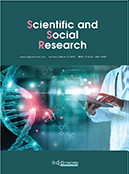Abstract
This paper, proposes practical teaching recommendations based on the integration of blended teaching and outcome-oriented education through a case study. Through an in-depth exploration of projects such as creating individual resumes, the study reveals that the blended teaching model, while providing a personalized learning experience, complements the philosophy of outcome-oriented education. Utilizing online learning platforms to stimulate students’ interests in self-directed learning and continuously optimizing teaching methods through a comprehensive performance assessment and practical skill development provide students with a more practical and holistic learning experience. This research offers valuable insights and guidance for future educational practices, presenting actionable teaching approaches for schools and educational institutions.
References
Ross V, 2012, From Transformative Outcome Based Education to Blended Learning. Futures, 44(2): 148–157.
Du W, Wang Y, 2019, Developing an Outcome-Based ESP Course with Blended-Learning Method for Chinese Undergraduates. Creative Education, 10(08): 1834.
Li J, 2021, Research on the Hybrid Teaching Model in Computer Courses Based on the OBE Concept. Journal of Contemporary Educational Research, 5(12): 52–57.
Li B, Zheng S, 2022, Teaching and Design of Computer Class Experimental Courses based on OBE. International Core Journal of Engineering, 8(7): 191–202.
Gao W, 2017, On the Countermeasures for Cultivating Students’ Autonomous Learning Ability in Ordinary Colleges and Universities. Heilongjiang Researches on Higher Education, 2: 157–158.
